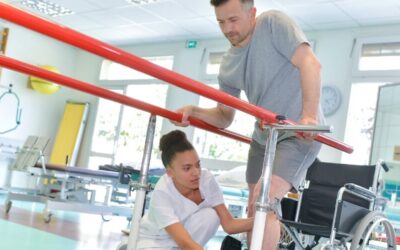Join us as we delve deep into the world of exercise physiology, unravelling how our bodies respond and adapt to physical activity and the science behind these changes. We will introduce you to the expertise of exercise physiologists who craft personalised exercise programs, ensuring they align perfectly with individual health and fitness goals.
We’ll explore the foundational principles of exercise physiology, such as the overload and specificity principles, and understand how these concepts help in designing effective workout routines. Furthermore, we’ll discuss the crucial role of recovery in exercise and its impact on performance and injury prevention.
What is Exercise Physiology?
Exercise physiology is a field of study that focuses on how the body responds and adapts to exercise. It is a multidisciplinary science that delves into the intricate workings of our bodies when it comes to exercise. It explores how our bodies respond and adapt to physical activity, understanding the physiological changes that occur to improve our overall health and fitness.
Exercise physiologists are experts in creating personalised exercise programs tailored to an individual’s fitness and health goals. They utilize their knowledge of the body’s response to exercise to design effective and safe workout routines.
The Science Behind Exercise Physiology
Exercise physiology is rooted in scientific principles and theories, combining elements of physiology, anatomy, biomechanics, and nutrition. It’s a multidisciplinary approach to understanding how our bodies function during exercise and how we can optimise the benefits we receive from it.
Overload Principle
One of the core principles of exercise physiology is the overload principle. This concept teaches us that for our bodies to improve their fitness, we need to challenge them beyond their comfort zone.
By gradually increasing the intensity, frequency, or duration of our exercise routines, we encourage our bodies to adapt and become stronger, faster, and more resilient.
Specificity Principle
Another key principle is specificity. It emphasises the importance of tailoring our exercise programs to match our specific goals and needs. Different types of exercises target different physiological systems.
Whether you’re an athlete, an office worker, or someone dealing with a chronic condition or recent surgery, exercise physiology recognizes the importance of personalised training to cater to your unique circumstances.
Recovery Principle
Additionally, the recovery principle reminds us of the importance of rest and recovery in our exercise routines. Adequate time for recovery allows our bodies to repair, rebuild, and adapt to the physical stress of exercise.
It’s during these recovery periods that improvements occur, leading to optimal performance and reducing the risk of overtraining and injuries.
Understanding the Physiological Benefits of Exercise
Exercise offers extensive physiological benefits that contribute significantly to overall health and well-being. By engaging in regular physical activity, individuals can experience improved cardiovascular health, enhanced muscle and bone strength, better weight management, and reduced risks of various chronic diseases.
Here’s a closer look at what benefits you can expect to gain.
Weight Management
When it comes to weight management, regular exercise is a powerful tool towards a healthier weight. By engaging in regular physical activity, combined with a balanced diet, you can promote calorie burn, increase your metabolism, and build lean muscle mass. Exercise not only helps you burn those extra calories, but also supports your long-term weight maintenance goals.
Minimises the Risk of Cardiovascular Disease
Taking care of cardiovascular health is essential for overall well-being, and exercise plays a key role in achieving this. Regular aerobic exercises such as walking, swimming, or cycling strengthen your heart muscles, improve circulation, and lower blood pressure. These activities also help reduce cholesterol levels and minimise the risk of heart disease.
Type 2 Diabetes and Metabolic Syndrome
If you’re living with type 2 diabetes or metabolic syndrome, exercise can be a game-changer. Physical activity improves insulin sensitivity, helps regulate blood sugar levels, and supports weight loss efforts. Regular exercise, combined with appropriate medical management, can contribute to better control and management of these conditions.
Reducing the Risk of Infectious Diseases
Exercise not only enhances your physical fitness but also boosts your immune system. A strong immune system is better equipped to defend against infectious diseases. Regular physical activity can help reduce the risk of illnesses such as colds, flu, and other respiratory infections.
By engaging in exercise, you’re taking a proactive step towards safeguarding your health and well-being.
Lowering the Risk of Some Types of Cancers
Did you know that exercise can significantly lower the risk of certain types of cancers? Research suggests that regular physical activity can reduce the likelihood of developing colon, breast, and lung cancers, among others.
While exercise should not be seen as a replacement for medical screenings or treatments, incorporating regular physical activity into your life can provide added protection against these diseases.
Strengthening Your Bones and Muscles
Strong bones and muscles are vital for maintaining mobility and preventing injuries, especially as we age. Exercise, particularly weight-bearing exercises and strength training, helps improve bone density and muscle strength.
By incorporating exercises that target these areas into your routine, you can reduce the risk of fractures, osteoporosis, and age-related muscle loss.
Increasing Longevity and Life Quality
Exercise is not just about living longer, but also about living better. Regular physical activity can increase your longevity and improve your overall quality of life.
Engaging in exercise releases endorphins, those feel-good hormones that boost mood, reduce stress and contribute to a greater sense of well-being. Exercise also enhances cognitive function, supporting mental sharpness and vitality as you age.
Take the Next Step
At Mid North Coast Allied Health, we bring a unique approach to exercise physiology, merging technical expertise with a warm and understanding tone. Our team of professionals is dedicated to helping you achieve your health and fitness goals, catering to your specific needs and circumstances.
We believe in the power of personalised exercise programs that consider your pain points and offer hope through the benefits of exercise.
If you’re ready to embark on a rewarding journey towards improved health and well-being, we invite you to explore the world of exercise physiology. Visit us at Mid North Coast Allied Health to learn more about how we can support you on your path to a healthier and happier life.
How to Meal Prep Recipes for a Healthy Week
Embarking on a journey towards a healthier lifestyle can often feel like an uphill battle, fraught with time constraints and dietary dilemmas. However, with a bit of planning and creativity, meal prepping can transform this challenge into an achievable — and maybe...
How the NDIS Works – A Comprehensive Overview
The National Disability Insurance Scheme (NDIS) is a crucial part of Australia's social welfare system, offering a new way of providing individualised support to people with permanent and significant disabilities. Unlike traditional disability support systems, the...
Concussion Treatment: Tips for a Smooth Recovery
A concussion is a type of brain injury that can have serious physical, cognitive, and emotional implications—Especially if left untreated. Whether you're an athlete, office worker, or caregiver, it's important to understand the signs, symptoms, and recovery process...






